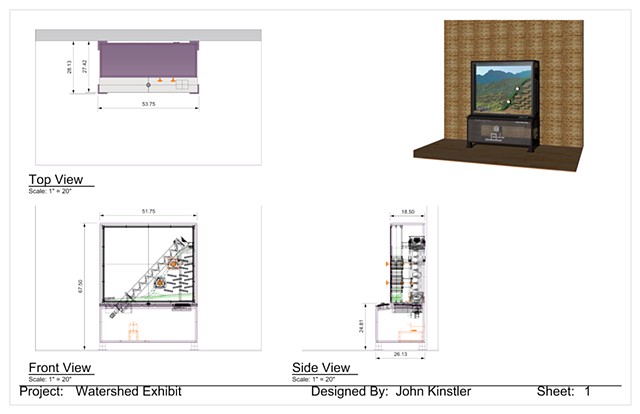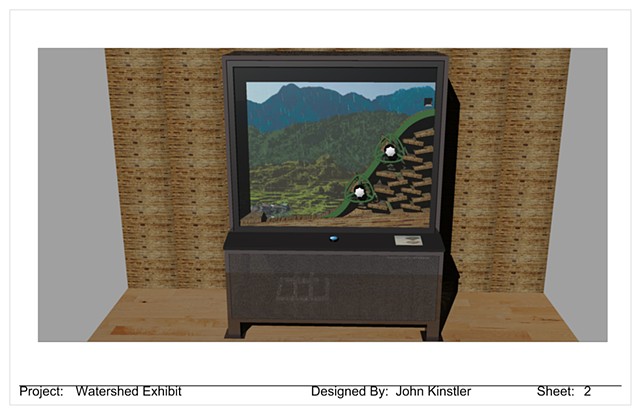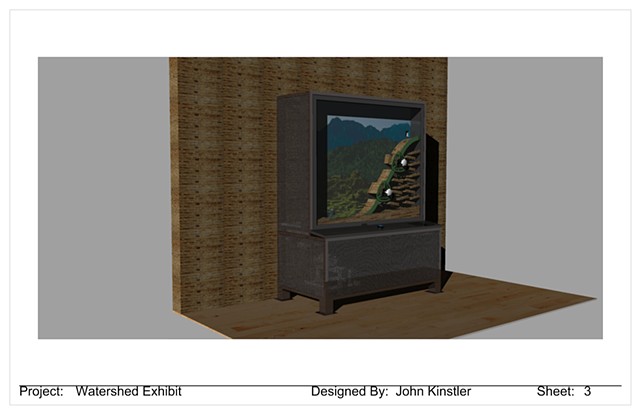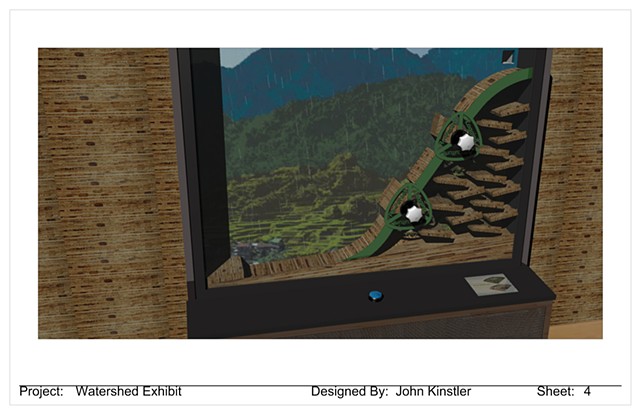Watershed Exhibit
I designed and built this interactive exhibit for the permanent Restoring Earth exhibition at the Field Museum of Natural History. It is a ball machine that uses an Archimedes screw and barrel mechanism to push small plastic balls up through an opening at the top of the case to simulate waterflow. From there the balls cascade down a very stylized mountainside meant to illustrate those that are prevalent in the Philippines. This exhibit was part of a larger hall devoted to the ecological impacts of too many human economic activities in certain fragile ecosystems.
Vegetation on these steep Philippine mountainsides has evolved to absorb the frequent torrential storms without giving way to mudslides and erosion over many thousands of years. Unfortunately, due to cycles of corruption and endemic poverty, these same mountainsides have been clear-cut to make way for cash crops and logging. Due to this, there are now frequent, cataclysmic mudslides, where before there were none.
Users have the ability to change what kind of human activity is performed on the mountainsides: agriculture, logging, or nothing. With the different chosen activities at different heights along the mountainside, users can observe a variety of consequences for the actions chosen at different locations by pressing the Rain button in the center of the control rail. This activates the screw and barrel system and water balls quickly come pouring forth down the mountainside. If users allowed too much activity, too high on the slope, the consequences for the people who live in the cities at the feet of these mountains are quickly devastating. These results are further reinforced through a video playback on the right of the rail that indicates which activities the users selected.
The lesson is that there are certain ecosystems that are extremely robust and resilient and evolved to take on mother nature's worst weather. But these ecosystems still exist in delicate balance and too much human economic activity can quickly destroy what had built up over many, many thousands of years.



